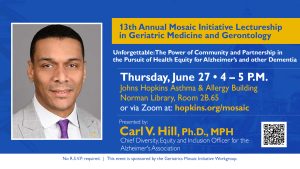Stay tuned for more information on the 2024-2025 COAH Scientific Seminars Series. The first meeting of the new academic year will take place on Monday October 7. 2024 at 3:30pm. More details will be provided soon.
13th Annual Mosaic Initiative Lectureship in Geriatric Medicine and Gerontology to be held on Thursday, June 27 at 4 pm.

Please join us! The EBA Training Program presents the 10th Annual Joint Presentation of the
BHS Lab, ENGAGE, SMART / WIT and Spira Sleep groups.
This meeting will take place Friday May 10, 2024, 2:30-4:00pm. In person: Room 1-500Q, 2024 E. Monument St,. with Zoom option (contact bbuta@jhu.edu).
Please join us for the next COAH Scientific Seminar: May 6, 2024, 3:30-5:00pm. Speaker: Stephen Kritchevsky, PhD, Professor, Gerontology and Geriatric Medicine, Wake Forest University School of Medicine. Title: The Hallmarks of Mobility. Location: Room 1-500Q, 2024 E. Monument St. building, with a Zoom option. Please contact Monique Lee.
